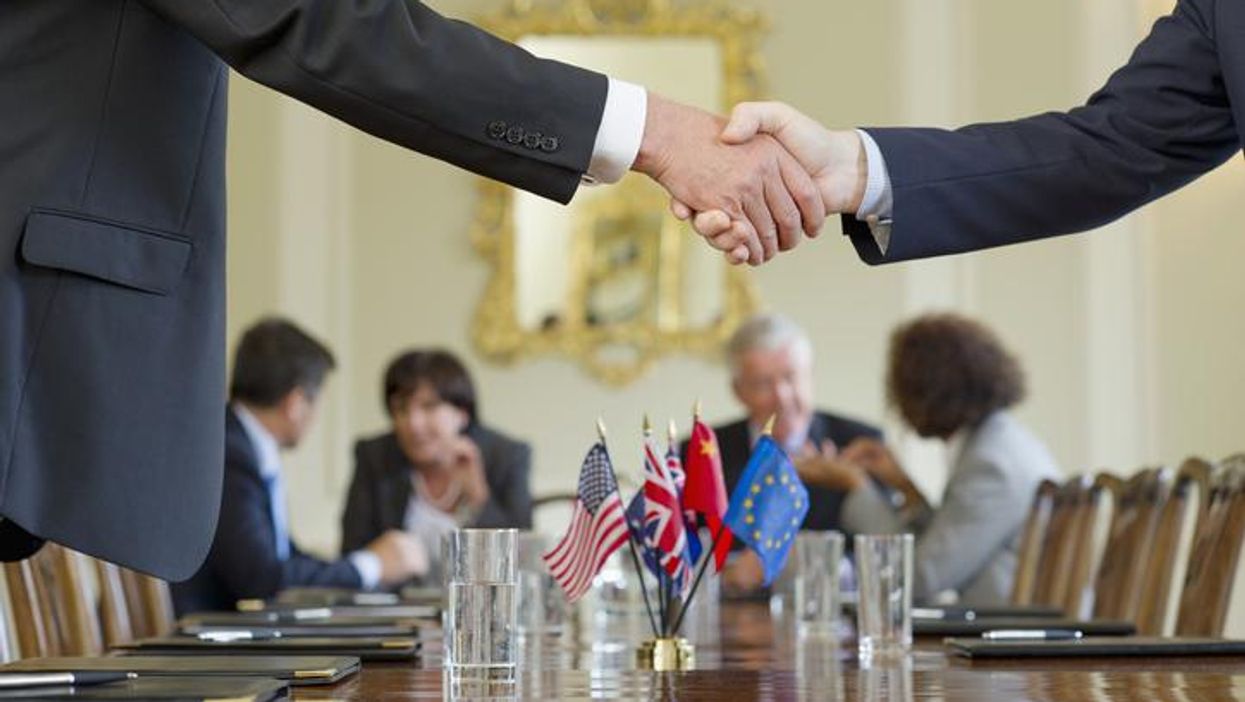Quixada Moore-Vissing, Sara Clarke-De Reza, Erin McNally, and Mikayla Townsend are with Public Agenda, a nonprofit, nonpartisan organization dedicated to creating a stronger, more inclusive, more participatory democracy for everyone. This is part of an occasional series on the Healthier Democracies initiative, supported by the Robert Wood Johnson Foundation.
A common complaint we hear from American public officials is that the public doesn't show up to their events, or that it feels like only the "usual suspects" take the time to engage. Our local public servants need support to learn how to create meaningful opportunities for collaboration with their communities, ones that attract broad cross-sections of the population and encourage people to continue to engage over time. The goal of Public Agenda's Healthier Democracies initiative is to do just that—we are collecting examples from around the world of exceptional government-led democratic engagement for American public officials to learn from.
We want to know about creative ways that state and local governments are experimenting with engaging the public—including practices that attract new and diverse populations and allow for meaningful collaborations between government and the community. With this aim in mind, we are identifying and collecting data on 15 case studies of international democratic innovations that have been embedded in government and sustained over time. As we conduct data collection and analysis this summer, here are some of the ideas and questions we are grappling with:
Engagement is more meaningful when governments focus their efforts on building the capacity for local people to lead and participate in engagement processes rather than hiring an outside company to come in and lead the process. Capacity building can include leadership trainings, supported environments to test out new skills, and structures that allow for community members to naturally intermix and build relationships with others.
For example, in Kerala, India, the local government has created opportunities to cultivate women's leadership and engagement through a structure called the Kudumbashree. In this structure, women can process their priorities for the community among other women in safe, supported spaces, and then they present them to the local governing councils. To assure women's participation, the councils reserve a certain number of governing seats just for women. This capacity building approach to women's leadership has resulted in greater social capital and better economic opportunities for women in Kerala.
Governments can support engagement in the community without always leading it themselves. Although it is important to create opportunities for public officials and the public to come together, it's also valuable for governments to support opportunities for the public to connect without a heavy government presence. This allows for people to more organically build bridges and network in the community.
In Bologna, Italy, local officials passed a law that supports public collaboration on public works projects. Individuals, groups, and organizations can submit ideas that encourage collaboration in local public spaces. The city offers thought partnership to the public if they want help developing their ideas through the City's Civic Imagination Office, and the city also provides public spaces for people to come together to brainstorm ideas. These public spaces have yielded over 70 collaborative meetings and have connected over 1,700 community members in Bologna, all without the government controlling the process.
Governments that have sustained processes in place for engagement are able to be more agile in responding to crises such as natural disasters. Crisis response has been more successful in communities with strong social networks, good working relationships and trust between the government and the public, and structures in place that allow for engagement. In light of the pandemic, we may want to pay closer attention to which communities have thrived and which have struggled in their ability to take care of the community and respond rapidly, and to explore how the quality of response is linked to engagement infrastructure in the community.
In Gdansk, Poland, the city created citizens' assemblies in response to intense flooding from a river that cuts through the heart of the community. These citizens' assemblies allowed for local people to discuss how to better respond to natural disasters in the future. After adopting the recommendations from the citizens' assemblies, the subsequent flooding that occurred the following year resulted in much less damages to the city and no injuries. Plus, these citizen assemblies offer Gdansk a new way of making decisions that allow for greater public participation in the process.
As we think about how to strengthen democracy at the local level, lessons from other countries can help us get out of our ruts and try new things. In particular, we see the value of investing in local people and collaborative processes that in turn enable increased trust and social capital.



















